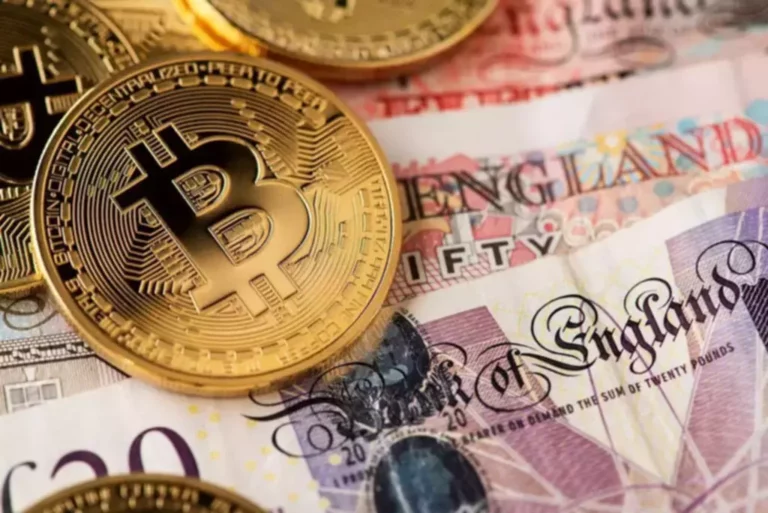Most traders have degrees in math (especially accounting), finance, banking, economics or business. Not that liberal arts types can’t have successful careers as traders—any field that encourages research and analytic thinking develops useful skills. But make no mistake, number-crunching, finance, and business matters are a big part of the profession, so you need to be comfortable with them. A broker is an individual or financial services company that enables the trading of securities for other individuals. A dealer is an individual or financial services company that enables the trading of securities for themselves. Most firms‘ investors would act as both brokers and dealers and are therefore referred to as broker-dealers by industry regulators.
- A broker is a person who will buy and sell goods for others.
- They’re more easily recognizable by that term, especially if you’re new to the world of financial investing.
- If that’s the case, then the trader would trade based on what the firm wanted.
- As of July, 2021, the exam lasts 105 minutes and consists of 50 questions.
- Other traders act as proprietary traders, engaging in trades on behalf of their firms, or take the other side of a trade when no buyer or seller is available.
Both brokers and traders must be licensed by the Financial Industry Regulatory Authority (FINRA). The main difference between brokers and traders is the way they make money. Brokers earn commissions on the trades they execute for their clients, while traders earn profits on the trades they make for their firm.
Bottom Line: Which Career is Right for You?
Transitioning requires additional training and possibly licensing. A shift in focus from transaction facilitation to market analysis or vice versa is essential. Brokers typically need a related degree and licensing exams.
Online brokers are perhaps the best example of this arrangement, as investors can log on, select a security, and purchase it without ever speaking to another person. Discount brokers offer an inexpensive way to purchase securities for investors who know exactly what they want to buy. Think of the legal entity that facilitates security trading as an agent acting on behalf of investors. When you want to buy or sell a security, the entity (in the case of online brokerage accounts for example) that helps you make that transaction is your agent. When you pay a commission to make a trade, you are making that payment to an agent. Of course, the language fits the medium, as the financial services arena is a complex world.
Although the technical term for a trader is proprietary or prop trader, we’ll refer to the name as simply trader throughout this guide to simplify things. The oversimplified version is—traders trade (obviously) on the stock market using their money. Brokers connect traders with the stock market, and they receive payment for that service. The differences between Brokers and Traders can be seen in a few details. While it typically takes null to become a Broker, becoming a Trader takes usually requires null.
JPMorgan Markets (Sales & Trading)
They analyze and study trends and data as they provide advisory services to others — mainly organizations. Advisors give financial advice to their clients and recommend financial investments and instruments to them so https://www.xcritical.com/ they can achieve their goals. To be a trader, you must pass the Securities Trader Representative Examination with a score of at least 70. As of July, 2021, the exam lasts 105 minutes and consists of 50 questions.

A broker is your go-to for seamless transactions and perhaps some investment advice, while a trader thrives on strategy, analysis, and market movements to generate profit. The easiest way to get access to a Wall Street firm trading desk—the department where securities transactions take place—is to apply to an investment bank or brokerage. Begin with an entry-level position like an assistant to a stock analyst or trader and learn everything you can. Many financial firms offer internships—some paid, some not—and year-long training programs for straight-out-of-college types, especially for those on a track to get their trading license. Some of the most well-known broker-dealers are Charles-Schwab, E-Trade, and TD Ameritrade. Some of these, like Charles-Schwab, are full-scale financial services firms, while E-Trade and TD Ameritrade are primarily online brokerage firms.
What does a trader do?
It can go up from there to about $2,500 or even higher to $10,000 as the minimum required. That’s because retaining quality clients and getting a lot of them is key to a broker’s success. Brokers and traders have different pay scales, as shown below. Explore more career opportunities and learn the skills you need to get hired with Forage’s free job simulations. Abdullateef is a writer, editor, and personal finance enthusiast, committed to empowering others on their journey to financial well-being.

Traders work in different markets — stocks, debt, derivatives, commodities, and forex among others — and may specialize in one type of investment or asset class. Many financial services roles play a key part in ensuring capital markets run smoothly and efficiently. Two such roles, investment banking and trading, are components of most large Wall Street a book broker meaning investment firms, where these integral functions are counted on to provide the bulk of revenue. These roles occasionally intersect in similar market places but have very distinct responsibilities. In essence, while both brokers and traders play pivotal roles in the financial ecosystem, their functions, risk profiles, and rewards differ markedly.
There are many types of traders, but some of the most common are flow traders, who use client funds, and agency traders, who act as intermediaries and place trades on behalf of clients. Full-service brokers offer a variety of services, including market research, investment advice, and retirement planning, on top of a full range of investment products. For that, investors can expect to pay higher commissions for their trades. Brokers receive compensation from the brokerage firm based on their trading volume as well as for the sale of investment products. An increasing number of brokers offer fee-based investment products, such as managed investment accounts.
It is almost impossible to give an exact salary range of an independent trader. The latter can earn according to its trading experience, the country and the conditions of a specific stock market. When you are not immersed in the world of finance all the time, it is sometimes difficult to know the difference between a trader and a broker.
Similar to traders, investment bankers connect buyers with sellers, and like traders, they are involved in the bond and stock markets. As well as executing client orders, brokers may provide investors with research, investment plans, and market intelligence. In the past, only the wealthy could afford a broker and access the stock market.
A forex broker is an intermediary that provides traders access to the foreign exchange market for currency trading. These bankers act as intermediaries between businesses and investors. Businesses raise capital by selling securities, while investors buy securities to make a profit. Investment bankers provide advisory services to businesses and help them raise the capital they need.

Traders trade for a living, stockbrokers tell people to get involved in trades for a living. To be employed as a trader, you need a proven track record of being able to consistently make money. To be employed as a stockbroker, you need to get licensed but you don’t need to prove you can consistently make money. Some brokers charge a monthly fee to provide data in real-time, while others include the service in their clients’ accounts. Today, you’ll see some online full-service brokers that cater to discount trades and they’ll charge a lower per-trade rate for that service.
Brokers: Academic Requirements and Licensing
Traders have higher earning potential but also greater risks. You have two years after passing an exam to register with FINRA to get your license. Before granting it, you will need a background check—both criminal and financial—a fingerprint card and you will need to register with the SEC. Making trading in stocks is considered very safe as it has fewer downsides. They can sell these things for themselves, a person, or a group of institutions.
Brokers do know where the best place in the city to grab a bite to eat. Most importantly, they have a lot to say about trades and it translates into profits for traders and themselves. The handle mutual funds, equities, and Exhange-Traded Funds (EFTs) for their clients. We all like to make money—but brokers and traders like to do so even more. So much so, that they devoted their careers to making money for the sake of money (more or less).

Napsat komentář